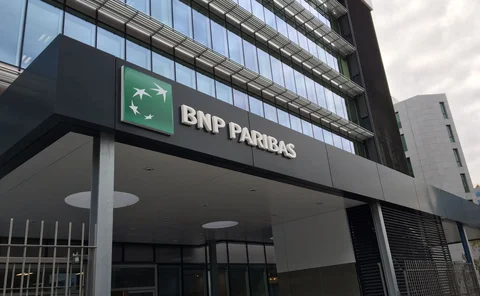FRTB
WHAT IS THIS? The Fundamental Review of the Trading Book (FRTB) is a set of market risk capital rules designed to replace a series of patches introduced after the financial crisis. It seeks to better-capture tail risk, to redraw the boundary between banking and trading books, and to raise the bar for internal models.
Will the UK’s FRTB time warp turn into a horror show?
UK regulator’s proposed transition year in 2027 could double banks’ implementation work
European Commission already preparing next FRTB move
As EC runs out powers to delay rules again, proposal for temporary capital relief is on the agenda
Danske shrinks CVA capital charges 44% after hedge revamp
Credit protection buying spree helps cut capital requirements to lowest level since 2014
Bank of England floats ‘quasi-IMA’ in FRTB standardised method
Dealers welcome new route to capitalising residual risk, but it could fragment global ruleset
Japan FSA’s Ariizumi on Basel delays and regulating AI
Outgoing international affairs chief issues rallying call for Basel III adoption, saying Japan has “kept its promise”
CVA risk charges spike 73% at EU banks under Basel III
Crédit Agricole leads surge, as basic approach dominates CVA capital calculations
UniCredit’s market RWAs would inflate 75% under FRTB
Pro forma figures for capital floor give first look at de-modelling impact on a major EU dealer
Japan regulator calls on laggards to keep Basel promise
After EU and UK delays – and amid fears of US divergence – Japan is keeping a close eye on its peers, says Shigeru Ariizumi
The VAR-centric models that never were
Often spotlighted, rarely dominant – VAR plays a surprisingly small role in most IMA stacks
European supervisors showing ‘no mercy’ on SA-CVA approvals
Risk Live: Bank of America found the compliance workload similar to FRTB internal models
Bucking Japan megabank trend, Norinchukin’s market RWAs spike 41%
Latest surge underscores challenge of adapting to FRTB
BoE official plays down fears of global regulatory fragmentation
Risk Live: UK expects close co-operation with US, while others express concern over Basel III endgame
Barclays takes selective approach to FRTB IMA applications
Risk Live: UK bank is applying for approval for parts of its portfolio most likely to pass approval tests
US Basel III delay to 2026 seen as almost inevitable
Reprioritisation and leadership changes cast doubts on timing of new proposals
‘I feel like a guinea pig’ – lessons from an early IMA adopter
Risk Live: Nomura’s Epperlein urges flexible approach to backtesting exceptions
The IMA map: charting market risk capital under Basel 2.5
The current market risk framework refuses to be superseded. Risk.net dissects banks’ disclosures to explore how trading book capital requirements have evolved
Mr Bessent goes to Basel: the fate of global bank regulation
US resistance to international standards could spark greater fragmentation of prudential rules
EC to decide on FRTB delay within ‘days’
Isda AGM: Consultation finds support for delay, with some wanting to go live with targeted changes
BNP Paribas’s CVA risk charges swell 56% on Basel III overhaul
Impact of new formulas is largest yet for a G-Sib
EU edges closer to calming FRTB fund-linked fray
Dealers say temporary solution is a step in the right direction but won’t fully resolve all issues
European Commission changes tune on proposed FRTB multiplier
Banks fear departure from original diversification factor undermines case for permanent relief
Trading desks want regulators to face down the NMRF monster
Rule-makers in Australia and the European Union are open to changes to the unpopular FRTB test
FRTB may bite harder for Europe’s CVA modellers
Farther reach of advanced approach and lighter load on total requirements mean limited takeaways from Canada and Japan’s implementation
Can Europe’s FRTB refurb bring banks back to Club IMA?
Softening the NMRF regime permanently might have the most impact, but the output floor still hurts























